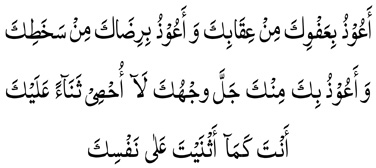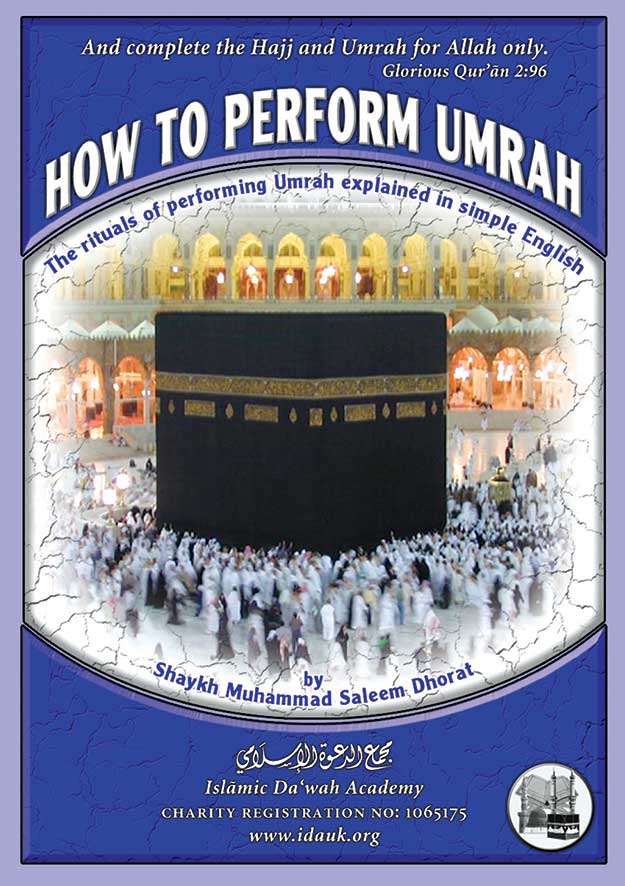
6th Sha'bān 1443 AH ~ Wednesday 9th
March 2022
Go
to:
•
The Significance of Sha‘bān
• The Fasts of Ayyāmul-Bīd
•
Our Publications

The Significance of Sha‘bān
By
Shaykhul-Hadīth, Hadrat Mawlānā Muhammad Saleem
Dhorat hafizahullāh
The
Significance of Sha‘bān
Sha‘bān, the eighth
Islamic month is second only to Ramadān in virtue,
blessings and greatness. It is due to this virtue and
greatness that the Prophet sallallāhu ‘alayhi
wasallam used to emphasise its importance not only
verbally but practically too.
Sayyidah ‘Ā’ishah
radhiyallāhu ‘anhā narrates, “Rasūlullāh
sallallāhu ‘alayhi wasallam used to fast till we
would say that he would never stop fasting and he
would abandon fasting till we would say that he would
never fast. I never saw Rasūlullāh sallallāhu
‘alayhi wasallam fasting for a whole month except
the month of Ramadān and did not see him fasting in
any month more than in the month of Sha‘bān.” (Al-Bukhārī,
Muslim, Abū Dāwūd, An-Nasā’ī)
Sayyidah ‘Ā’ishah
radhiyallāhu ‘anhā narrates, “Rasūlullāh
sallallāhu ‘alayhi wasallam used to fast the
(whole) month of Sha‘bān except for a few days.”
(An-Nasā’ī)
Sayyidunā Usāmah
radhiyallāhu ‘anhu asked, “O Rasūlullāh! I do
not see you fasting in any month as much as in
Sha‘bān.” He sallallāhu ‘alayhi wasallam
replied, “It is a month people are negligent of
between Rajab and Ramadān. It is a month in which
deeds are raised towards the Lord of the worlds.
Therefore, I like my deeds to be raised whilst I am
fasting.” (An-Nasā’ī)
Fifteenth
of Sha‘bān
Amongst the days and
nights of Sha‘bān,
the fifteenth night is noted for its great
blessings and virtues. This night is known as Laylat-ul-Barā’ah
(the night of emancipation), as in it a large
number of servants are forgiven and emancipated from
the fire of Jahannam.
Fortunate indeed are those who attain the full
blessings and benefits of this night by spending it
in performing good and refraining from evil. One must
strive his utmost to attend to ‘ibādah (worship)
in this auspicious night as this night indeed is a
great favour of Allāh ta‘ālā for the believers.
There are many virtues mentioned in the ahādīth
in regard to this night.
1. Sayyidunā
Mu‘ādh ibn Jabal radhiyallāhu ‘anhā narrates
that the Messenger of Allāh sallallāhu ‘alayhi
wasallam said, “In the fifteenth night of Sha‘bān,
Allāh ta‘ālā manifests and forgives all His
creation except for the mushrik and the spiteful.” (At-Tabarānī)
2. Sayyidah ‘Ā’ishah
radhiyallāhu ‘anhā narrates, “The Messenger of
Allāh sallallāhu ‘alayhi wasallam came to me (one
night) and took off his clothes, but he had hardly
sat down when he got up again, put on his clothes and
left. A strong ghayrah (sense of honour and
self-respect) overtook me as I thought he was going
to one of his other wives. I followed him and found
him in the graveyard of Baqī‘ seeking forgiveness
for believing men and women and the martyrs. I said
(to myself), ‘May my parents be sacrificed for you.
You, (the Prophet) are in want of your Lord and I am
in want of the world.’
I returned to my room
(quickly) and I was breathless. The Prophet sallallāhu
‘alayhi wasallam arrived shortly and said, ‘Why
are you breathless, O ‘Ā’ishah?’ I said,
‘May my parents be sacrificed for you. You came to
me and took off your clothes, but you had hardly sat
down when you got up and put on your clothes (and
left). A strong ghayrah overtook me and I thought you
were going to one of your (other) wives until I saw
you in (the graveyard of) Baqī‘ doing whatever you
were doing.’
He sallallāhu ‘alayhi
wasallam said, ‘O ‘Ā’ishah! Did you fear that
Allāh and his Messenger will treat you with
injustice? Jibra’īl came to me and said, ‘This
night is the fifteenth night of Sha‘bān. Allāh
sets free from Hell during this night, souls
equivalent to the hair (and wool) of the goats of Banī
Kalb.’ (Banī Kalb possessed the largest number of
goats in the Arabian peninsula.)
‘However, Allāh will
not look (with mercy) even on this (auspicious) night
towards mushriks, one who harbours ill will against
his fellow beings, one who cuts himself off from his
near relatives, one who dangles his clothes over his
ankles, one disobedient to parents and a habitual
drunkard.’”
Sayyidah ‘Ā’ishah radhiyallāhu ‘anhā says,
“He took off his clothes, then said, ‘O ‘Ā’ishah!
Will you permit me to spend this night in worship.’
I replied, ‘Certainly. May my parents be sacrificed
for you.’ The Prophet sallallāhu ‘alayhi
wasallam got up and remained in sajdah (prostration)
for a very long time until I thought he had passed
away. I got up to inquire and placed my hand on his
feet to feel that he was alive, thus I became happy.
I heard him say in his prostration:

I seek refuge in Your
Forgiveness from Your Punishment. I seek refuge in
Your Pleasure from Your Anger. I seek refuge in You
from You i.e. Your Punishment. Majestic is Your
Being. I am not able to praise You (as You are
worthy of praise). You are exactly as You have
praised Yourself.
In the morning, I
mentioned these words to him. He sallallāhu
‘alayhi wasallam said, ‘O ‘Ā’ishah! Learn
them and teach them (to others) because Jibra’īl
taught me and ordered me to repeat them over and over
again in sajdah.’” (Al-Bayhaqī)
Note: Shaykh Muftī Taqi
Usmani hafizahullāh states, “Although the
chain of narrators of some of these ahādīth suffer
with some minor technical defects, yet when all these
ahādīth are combined together, it becomes clear
that this night has some well founded merits, and
observing this night as a sacred night is not a
baseless concoction as envisaged by some modern
scholars who, on the basis of these minor defects,
have totally rejected giving any special importance
to this night. In fact, some of these ahādīth have
been held by some scholars of hadīth as authentic
and the defects in the chain of some others have been
treated by them as minor technical defects which,
according to the science of hadīth, are curable by
the variety of their ways of narration. That is why
the elders of the Ummah have constantly been
observing this night as a night of special merits and
have been spending it in worship and prayers.”
Recommended Deeds
The following practices
are derived from the ahādīth which have been
mentioned above for Sha‘bān and its virtuous 15th
night.
1.
It is desirable that one fasts in the month of
Sha‘bān as much as one can. Fasting on the Ayyām-ul-Bīd
(i.e. 13th, 14th and 15th
of the Islamic month) and Mondays and Thursdays will
be a means of even more reward as it is Sunnah to
fast on these days. However, if fasting in Sha‘bān
is going to affect the fasting of Ramadān then one
should refrain from it.
Note: The fast of
the 15th of Sha‘bān can only be derived
from a hadīth that has an extremely weak narrator in
the chain of narration, due to which it cannot be
relied upon in the matter of the injunctions of Sharī‘ah.
Thus, the fast of the 15th of Sha‘bān
cannot be termed as Sunnah or Mustahab.
2. Although salāh
should be performed in jamā‘ah (congregation)
everyday, on this auspicious night, one must
participate with deep and solemn care in the Maghrib,
‘Ishā and Fajr Salāh.
3.
Spend as much time of the night as possible in
worship individually. No specific du‘ā or method
of worship has been prescribed. One may engage in
dhikr, recitation of the Qur’ān, salāh, learning
and teaching or any other form of ‘ibādah.
However, one must refrain from worldly talk and
wasting of time. If ‘ibādah is not possible then
at least avoid all sinful and useless acts and go to
bed as soon as possible.
4.
In one hadīth it has been mentioned that Rasūlullāh
sallallāhu ‘alayhi wasallam visited the graveyard
of Baqī‘. However, one may not establish the
practice to be Sunnah as there is no mention of Rasūlullāh
sallallāhu ‘alayhi wasallam making it a general
practice of this night. Hence, if one visits the
graveyard once in a while it will be permissible.
One must refrain in
particular from all those practices that are contrary
to the Sunnah. Many of us deprive ourselves of the
blessings of such auspicious moments and the Favours
of Allāh ta‘ālā by following those customary
acts which have no basis in the Qur’ān and Sunnah.
May Allāh ta‘ālā guide us all on the straight path
and enlighten us with the blessings of this sacred
month and its blessed night. Āmīn.
©
Islāmic Da'wah Academy
The Fasts of Ayyāmul-Bīd
Sayyidunā Milhān Al-Qaysī radhiyallāhu ‘anhu
reports, “Rasūlullāh sallallāhu ‘alayhi wasallam
would encourage us to keep the fasts of Bīd i.e.
the thirteenth, fourteenth and fifteenth.” He
further narrates that Rasūlullāh sallallāhu
‘alayhi wasallam mentioned, “It is equivalent to
fasting every day.” (Abū Dāwūd)
This is because Allāh
ta‘ālā through His infinite grace has promised
reward ten-fold upon each action. Therefore, fasting
three days is actually equivalent to fasting thirty
days i.e. an entire month. Hence, the reward of
practising upon this every month will be equal to
the reward of one who fasts every single day of his
life.
Rasūlullāh sallallāhu ‘alayhi wasallam himself
punctually fasted on these days and also encouraged
his followers to do the same. According to the
weightiest opinion, the 13th, 14th and 15th of every
lunar month have been titled Ayyāmul-Bīd, the days
of Bīd.
For the month of Sha‘bān, the Ayyāmul-Bīd will
fall on 16th, 17th and 18th March.
All readers are urged to make the most of this
opportunity and practise upon this sunnah of
Rasūlullāh
sallallāhu ‘alayhi
wasallam.
©
Islāmic Da'wah Academy
Download poster
(PDF)
Our Publications
 |
|
Profit from Ramadān
Fasting is one
of the most important pillars of Islām.
Denying its obligation takes one outside the
fold of Islām, and not to fast during the
month of Ramadān is a transgression of the
highest degree which destroys a person
spiritually.
‘Profit from
Ramadān’ is a booklet on the blessings of
this month and how one can derive maximum
benefit from it in order to acquire the
Nearness and Pleasure of Allāh ta‘ālā. (36
pages p/b) 70p |
|
|

|

|
|
Are
you going for 'Umrah?
A
complementary set of pocket sized booklets by Shaykh Mawlānā Muhammad Saleem Dhorat
hafizahullāh explaining the method
of performing 'Umrah and Ziyārah, encouraging the reverence and etiquettes of the
Haramayn, highlighting some important errors and inappropriate conduct people have become accustomed to,
and containing practical advice and spiritual
insights to ensure you get the most from your
blessed journey.
Also
included in the set are du'ā compilations for
you to recite whilst in the Haramayn. |

|

|
|
|
To order any of our booklets or leaflets, please
call or message 07745 315 613 / 07702 801 709.
|
•
Please forward this message on to all your contacts
•
Unsubscribe
Remove your address from our mailing list. Unsubscribe.







